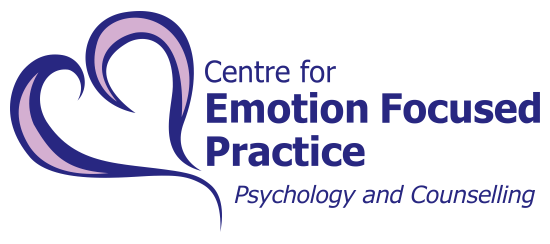Learning Disabilities
 Learning disabilities is an umbrella term, encompassing a range of disorders which hinder an individual’s learning process. Learning disabilities make it difficult for a person to learn as quickly or in a similar manner as someone who is not affected. These disorders often affect the person’s acquisition, organization, retention, understanding or use of verbal and/or nonverbal information.
Learning disabilities is an umbrella term, encompassing a range of disorders which hinder an individual’s learning process. Learning disabilities make it difficult for a person to learn as quickly or in a similar manner as someone who is not affected. These disorders often affect the person’s acquisition, organization, retention, understanding or use of verbal and/or nonverbal information.
Learning disabilities are characterized by impairment in one or more of the processes related to perceiving, thinking, remembering or learning. Hence, people with a learning disability have problem completing tasks or performing specific skills if taught in conventional ways or left to accomplish them on their own – unaided.
Types of Learning Disabilities
There are seven major types of learning disabilities. These are described below along with their characteristics and symptoms:
Dyslexia is a reading or print-based learning disability. Children having dyslexia face difficulty with word recognition and decoding print. They often struggle with identifying and comprehending words while reading or spelling. Since deciphering printed words from a book takes such a great effort, they often fail to comprehend the meaning of what they have read.
Common signs include:
- Difficulty with basic letter sounds
- Painfully slow reading
- Trouble decoding letters
- Mixing up the order of letters
- Misreading visually similar letters; e.g., b as d, p as q, and so on.
- Unable to recall known words
Dysgraphia is a writing disability. Children having dysgraphia may lack information processing skills and/or the complex set of motor skills required in writing. They struggle to write complete and grammatically correct sentences. Also, they often exhibit extremely poor handwriting.
Common signs include:
- Can converse about a topic or an idea, but is unable to write it down on paper
- Grips the pencil awkwardly
- Illegible handwriting
- Frustrated with writing down their thoughts on paper
Dyscalculia is a math-based learning disability. Children with dyscalculia face trouble distinguishing numbers and mathematic symbols. They find basic math concepts difficult to understand. Older students with dyscalculia often have difficulty related to reasoning.
Common signs include:
- Often mistaking numbers which are visually similar; e.g. 3 and 8
- Trouble with recalling number sequences
- Unable to keep up with the patterns when adding, subtracting, multiplying, or dividing
- Problem with cost estimations and managing money.
Central Auditory Process Disorder (CAPD) is an auditory disability. CAPD makes it difficult to process the information heard and also in interpreting speech. A child with CAPD basically has a hearing problem where the brain does not interpret information heard rather than a lack of ear function.
Common signs include:
- Easily sidetracked by background noises
- Problem in following conversations and discussions
- Trouble following directions
- Usually misspells or mispronounces words with similar sounds
Nonverbal learning disorders are also considered under the umbrella of learning disorders. Children who have been diagnosed with it are often very coherent and do well academically. However, they are deficient in interpreting nonverbal communication, common social skills, and motor coordination.
Common signs include:
- Has poor fine and/or gross motor skills
- Unable to perceive nonverbal cues such as body language and facial expressions
- Disruptive in conversation, may ask too many questions
- Faces difficulty in dealing with change
Visual Processing Disorder is characterized by the inability to receive, process, sequence, recall or express visual information in a well-timed and precise way. This does not signify that the child has an eyesight problem; rather, the brain has difficulty with processing visual information.
Common signs include:
- Unable to find numbers or details on a page; often looses track of the sentence while reading
- Mistakes letters and numbers which look similar in shape
- Difficulty remembering the spelling of familiar words
- Faces difficulty in writing within lines or margins; coping words accurately and uniform spacing between letters or words
Aphasia and dysphasia (global aphasia) are language-based disorders. Children suffering from these disorders have trouble expressing themselves verbally. They also have problem understanding spoken or written language.
Common signs include:
- Difficulty expressing thoughts verbally
- Unable to comprehend while reading
- Irritated when speaking
- Cannot label objects
How Learning Disabilities are Diagnosed
Learning disabilities are diagnosed by professional psychologists; often children lagging behind in class are assessed by school psychologists. Assessment may reveal learning disabilities. It is important to note that these children have normal IQ, i.e., they possess the capability to learn just as well as other students of their age. However, some of the above mentioned disabilities hinder the learning process. Therefore, a learning disability is primarily identified by the discrepancy in the child’s ability and achievement.
In case a psychologist is not available at school and parents notice that their child is lagging behind in school or certain aspects of development, it is crucial to contact a psychologist and arrange for an evaluation procedure for the child.
Managing Learning Disabilities
There is no direct cure for learning disabilities and they remain life-long. However, after diagnosis, steps can be taken to diminish the effects of a learning disability. High levels of support and effort is often required by the parents and teachers to help the child cope with his/her learning disability. Depending on the severity of the disability, the mode of instruction in class is often needed to be altered and individualized according to the child’s requirements. Several technological tools and gadgets also known as “assistive technologies” are now available to help children with such disabilities cope better in class and at home – facilitating the learning process.
Tips for parents having a child with a learning disability
Learning disabilities are present by birth and are not in control of the child. Therefore, the parents should NOT blame the child for poor grades. Getting angry at the child for not performing well would only make it worse for the child. Children with learning disabilities are at a huge risk of facing emotional and self-esteem issues and also have trouble making friends as they lag behind in class. Therefore, it is highly recommended to help the children see themselves in a positive light. Parents should encourage and emphasize the tasks which the children are good at; e.g., sports, mental math etc. In case the child is having a problem making friends at school, parents should equip the child with the necessary social skills and request school staff to help the child make friends from within the class. If the child is still facing emotional, social or behavioral issues, the parents should seek help from a psychologist.
Tips for teachers
Students with learning disabilities often require well sequenced, easily comprehensible, and explicit instructions. Teachers should help them learn effective strategies for managing their assignments. For instance, teach them how to use a graphic organizer to remember the instructions and learning material. Teachers should also make adjustments and alterations in the mode of instruction when catering to a student with learning disability – such as, giving the assignment in larger print or take a spelling test verbally instead of asking the student to write. These children could also be given more time to complete an assignment.
Child Practitioners at the Centre
Mathew Gaynor is a practitioner at the centre who has experience in treating children.
To get an appointment or to make enquiries, please call (03) 9820-5577.





I really enjoyed reading this blog, it is really informative and well written. It is great to see a blog that explains the many different types of learning disabilities and how to identify them. Early detection in important and to have a resource like this for parents and caregivers to refer to is fantastic. Knowing what next step to take is also important as there is a lot of information available and it can be overwhelming. Thank you for sharing this blog, it was enjoyable.